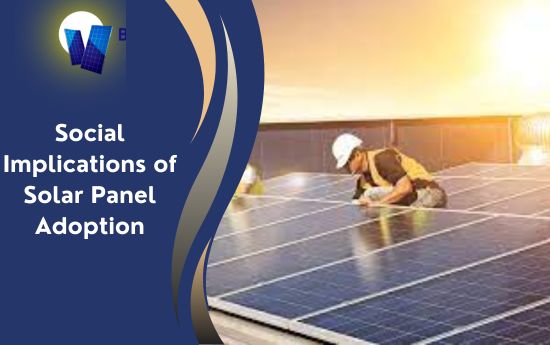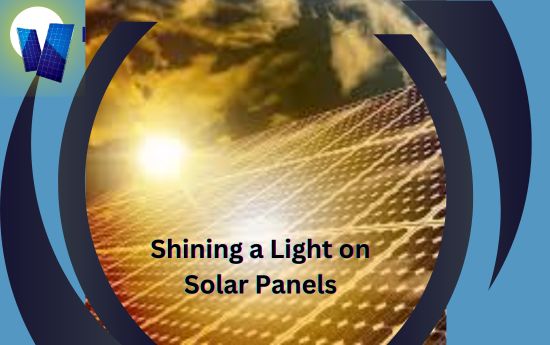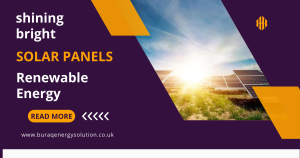Solar panels are a form of renewable energy that uses the sun’s energy to make electricity. The photovoltaic effect is the process by which photovoltaic cells convert sunlight into electricity. Solar panels’ capacity to combat climate change and reduce carbon emissions is one of their primary advantages. By producing power from the sun, sunlight-powered chargers help to lessen our dependence on petroleum products, which are a significant supporter of ozone-depleting substance outflows.
Sunlight-based chargers likewise give an economical and solid wellspring of energy. The sun is a for all intents and purposes boundless asset, implying that sun-powered chargers can keep on creating power long into the future. Additionally, solar panels are a versatile option for producing clean energy because they can be mounted on a wide range of surfaces, including rooftops and open fields. Solar panels can save money on electricity bills in addition to their environmental benefits. By creating your own power from the sun, you can decrease your dependence on the matrix and lower your energy costs after some time. In general, using solar panels to generate electricity and reduce your carbon footprint is a cost-effective, sustainable option. We can work toward a cleaner and more sustainable future for future generations by promoting solar panels and adopting renewable energy sources.
Social Implications of Solar Panel Adoption
Individuals and communities can achieve greater energy independence by generating their own electricity from solar panels, decreasing their reliance on centralized power sources and increasing their resilience to power outages and disruptions. Decentralized energy production, local economic development, and community resilience against energy price fluctuations and supply disruptions are all made possible by solar energy, which enables communities to take control of their energy future. Availability to power Solar panels have the potential to bridge the energy access gap, improve quality of life, support economic growth, and bring electricity to remote and underserved communities that do not have access to dependable grid infrastructure.

Myths and Misconceptions About Solar Panels
Affordability In spite of mainstream thinking, sunlight-based energy is turning out to be progressively reasonable, with falling costs for sun-powered chargers and great funding choices making it open to many purchasers, paying little mind to pay level. Reliability Current sunlight-powered chargers are profoundly solid and strong, with guarantees going from 20 to 25 years and anticipated life expectancies of 25 should be 30 years or more, giving a steady and unsurprising wellspring of power over their lifetime. Aesthetics Solar panels are now available with integrated rooftop systems, sleek black panels, and even transparent solar cells that seamlessly blend into architectural designs thanks to advancements in design and technology.
Conclusion
In conclusion, solar panels represent a promising solution to our energy needs, offering clean, renewable electricity that reduces our dependence on fossil fuels, mitigates climate change, and preserves natural resources.
Unique FAQs
- Are solar panels suitable for all climates? Solar panels can be installed in a wide range of climates, but their effectiveness may vary depending on factors such as sunlight intensity, duration, and seasonal variations. In regions with ample sunlight, solar panels can be highly efficient, while in areas with frequent cloud cover or limited sunlight, their performance may be lower.
- What is the lifespan of solar panels? Most solar panels come with warranties ranging from 20 to 25 years, but they can last much longer with proper maintenance and care. Solar panels are durable and resilient, with expected lifespans of 25 to 30 years or more, making them a long-term investment in clean energy.
- Do solar panels require a lot of maintenance? Solar panels require minimal maintenance, typically limited to regular cleaning to remove dirt, dust, and debris that can obstruct sunlight and reduce efficiency.
- How much money can I save by installing solar panels? The amount of money you can save with solar panels depends on various factors, including the size of your solar system, your electricity usage, local energy prices, available incentives, and financing options. On average, homeowners can save thousands of dollars over the lifetime of their solar panels through reduced energy bills and potential incentives.
- Are there any disadvantages to installing solar panels? While solar panels offer numerous benefits, including cost savings, environmental sustainability, and energy independence, there are some potential disadvantages to consider. These may include the upfront cost of installation, variability in energy production due to weather conditions, and the need for adequate roof space and sunlight exposure. However, with proper planning and consideration of these factors, solar panels can be a valuable investment in clean, renewable energy.



